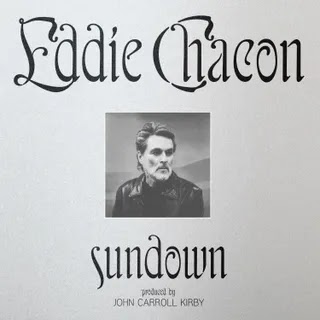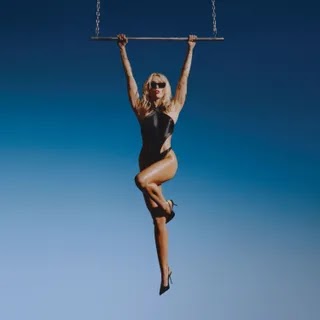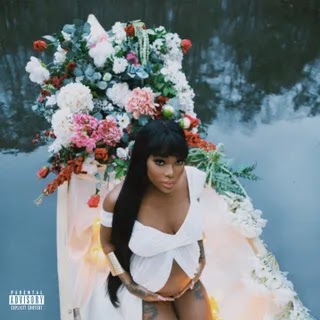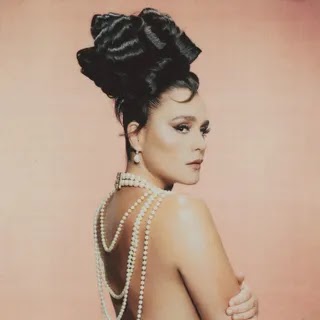With daring lyricism and technical ingenuity, singer-songwriter and multi-instrumentalist Brittney Parks’ second album conjures a frenzied energy as emotionally soothing as it is physically crushing.
Black women artists so rarely receive credit deserved for technical innovation in music-making, outside of vocal talent. Aretha Franklin’s discerning ear for melodies made her a fierce arranger who knew just where to place the instruments that formed the scaffolding of her hits. Sister Rosetta Tharpe’s guitar melded the sonic waves of Delta blues with the amorphous dissonance of a nascent rock sound. Patrice Rushen is a skillful piano player who can add classical notes to an explosive pop moment. Too often, their capacity as instrumentalists, mixers, and curators of sound at a diasporic and deeply intimate level is nudged to the side, the breadth of their accomplishments equated to the range of their voices. Sudan Archives’ work resists this flattening at every turn. Brittney Parks, the Ohio native whose 2019 debut Athena was a vivid introduction to her avant-garde pop, hip-hop, and electronic whimsy, is a self-taught multi-instrumentalist with an inescapable audio imprint. On her second album, Natural Brown Prom Queen, the singer and songwriter dances with herself at her own party, where she also happens to be guest of honor and headlining act. She’s a one-woman band who, across 18 sprawling tracks, transmits a frenzied energy that is as emotionally soothing as it is physically crushing.
“Only bad bitches in my trellis” is the siren call off “Home Maker,” the album’s first track, which turns the communal act of building a homestead into a flirty reminder that those we keep close speak volumes about how we wish ourselves to be perceived. Sudan only hangs with the very best, which makes her equally as striking as the baddest person in her corner. She’s optimistic and still observant, hyper-aware of the doubts and horrors beyond her doorstep. On “NBPQ (Topless),” her lyrics approach self-fragmentation at disorienting speed. Sudan is cynical and forlorn as the song opens, leaning into Toni Morrison’s Bluest Eye narrative and longing for her body to resemble those that are most celebrated: “Sometimes I think that if I was light-skinned/Then I would get into all the parties/Win all the Grammys, make the boys happy.” Hitching her vocals on electronic beats held together by sparse violin notes carrying rhythms reminiscent of the Sahel in summer, “NBPQ” plays like a moodboard, the unsettled feel of its instrumentation illustrative of an evolution in process. When her tone shifts on the chorus from despondency to indomitable confidence, so too does the beat, from strained reverie to thumping syncopation, interspersed with insistent claps. When she chants, “I’m not average, I’m not average, I’m not average,” there’s no choice but to believe her.
Midway through the album, the psychedelic road trip anthem “ChevyS10” arrives like a SZA confessional with the gilded heft of a stellar Kanye West presentation. Delivered as a rap that morphs into spoken word, Sudan’s verses pirouette across elongated beats that manipulate her voice so it lands like a robotic interjection from outer space. She reminds you of FKA twigs as she reaches for higher octaves, achieving a sound that is simultaneously ugly and captivating. Her cries to “leave tonight or live and die this way” harken to Tracy Chapman’s “Fast Car,” another plea for a love powerful enough to become an escape. Where they differ is in Sudan’s acknowledgement that, alone or not, she’ll still catch the town in her rearview mirror. Self-preservation, mental and physical, is of paramount concern, and she’s seeking pleasure at her own pace and in the keys of her choosing. “Ciara,” “OMG Britt,” and “Freakalizer” are the vocal equivalent of your most reliable vibrator—they sound good, sweaty, damn near turned on by the sensuality of a private rendezvous. As a trinity preaching a lavish type of self-centered prosperity gospel, this is dance music that invokes the eroticism exuded by a lineage of artists from Donna Summer, Cheryl Lynn, Betty Davis, through Janet Jackson.
Building in the steps of Black women and their sonic architecture, Natural Brown Prom Queen thrives on improvisation, daring lyricism, and technical ingenuity. Sudan’s DIY expertise means she’s attuned to the most minute shifts in her compositions as she records; her trusty Boss RC-20 loop pedal, alongside her ever-present violin, gives her room to indulge and savor. Hearing how the final beats of each song transition into the genesis of another—how the glitching static from “Copycat (Broken Notions)” sets the foundation for the rapturous sermon that kicks off “It’s Already Done,” and how the vibrating strings on “Milk Me” trampoline gracefully into “Yellow Brick Road”—lend each track a heady cinematic drama. Threaded throughout are Sudan’s universal themes: the social currency of beauty, the supreme boredom of the status quo, and the euphoria that accompanies new love. She’s moved by them but she is not beholden to them; on Natural Brown Prom Queen, she rejects all expectations and demands better from herself and everyone listening.
















0 comments:
Post a Comment